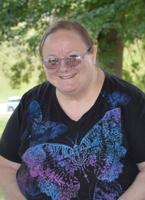If you are having emotional difficulties this winter, it may not just be the winter blues, it may be seasonal affective disorder, also known as seasonal depression.
Dr. Patrick Runnels, Chief Medical Officer of Population Health at University Hospitals, said the issue appears primarily in winter months when people experience less sunlight and shorter days.
“Particularly shorter days or less access to sunlight has an affect on everybody, and can impact everyone’s mood overall,” Runnels said. “For some people, it affects their mood so significantly they could be diagnosed with clinical depression.”
Symptoms are similar to clinical depression, and include depressed mood, sleeping too much or not enough, low energy and appetite, and diminished interest in hobbies or other things that used to interest them, he said.
Runnels said even if people don’t meet the criteria for full seasonal affective disorder, many people experience lower moods and glum feelings during winter months.
One treatment for seasonal affective disorder is artificial sunlight treatment, which uses a lamp that produces light similar to the sun, Runnels said.
“Exposing yourself to sunlight 20 or 30 minutes a day can go a long way towards relieving symptoms,” he said.
Others may choose to seek prescription medication or counseling, Runnels said.
Far more people will have lower mood due to winter than seasonal affective disorder, Runnels said. To combat that, Runnels suggested spending time outside when it is sunny, even on cold days.
“Not every day is the safest day to go out, so taking advantage of days that are more in the high 20s and low 30s when they come around is an important thing to remember as well,” Runnels said.
Traveling to warmer areas for a small time during the winter can also help, for those who have the ability, he said. Making sure to remain socially connected is also important. People tend to be socially isolated in the winter, Runnels said.
“Certainly over the last two years and two winters, COVID has worsened that,” he said.
Runnels said caution is still emphasized because of COVID-19, but people should maintain some social connection. Scheduling events ahead of time can be a good way to avoid getting into a rut, he said.
Physical activity is a good way to counteract the lack of sunlight, Runnels said.
“Finding ways to exercise, get your heart rate up, and sweat a little can be really a big balm for a lot of the other difficult things that are going on,” Runnels said. “We have a tremendous amount of evidence that exercise actually helps boost peoples’ mood.”
Doing anything to get your heart rate up for 20 to 30 minutes a day, and doing it more days a week than not, can be a big deal, Runnels said.
“That could be doing sit-ups or push-ups, walking up and down the stairs a lot, playing with a pet, anything,” Runnels said. “For some people who are a little older, it can be less rigorous than for someone who’s 20.”
Having a normal sleep cycle is also important, Runnels said.
Incorporating those steps into your schedule before the winter can be helpful to prevent issues with seasonal depression, Runnels said.









Commented
Sorry, there are no recent results for popular commented articles.